
Find Help
More Items From Ergsy search
-

What should students do if their application for the payment is denied?
Relevance: 100%
-

What happens if my application is denied?
Relevance: 67%
-

Can part-time students apply for the £500 payment?
Relevance: 61%
-

How can students apply for the £500 cost of living payment?
Relevance: 60%
-

Do international students qualify for the £500 payment?
Relevance: 57%
-
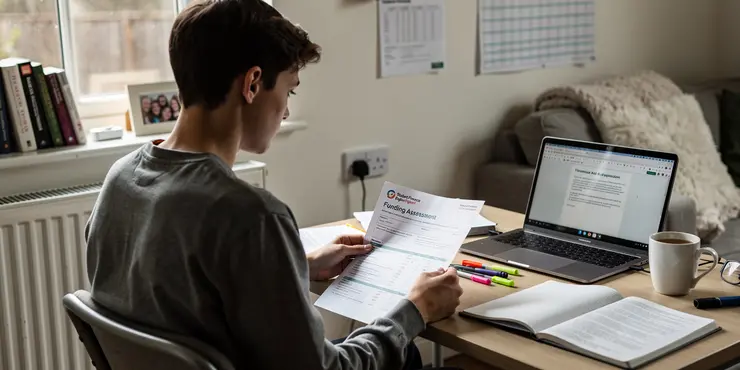
Is there an income threshold for students to qualify for the payment?
Relevance: 57%
-

What is the deadline for students to apply for the £500 payment?
Relevance: 56%
-

Can students receive the £500 cost of living payment?
Relevance: 56%
-

Are students eligible for the £500 cost of living payment?
Relevance: 56%
-

What happens if my application is denied?
Relevance: 53%
-

Is documentation of student status required for the payment?
Relevance: 53%
-

Can mature students apply for the £500 cost of living payment?
Relevance: 52%
-
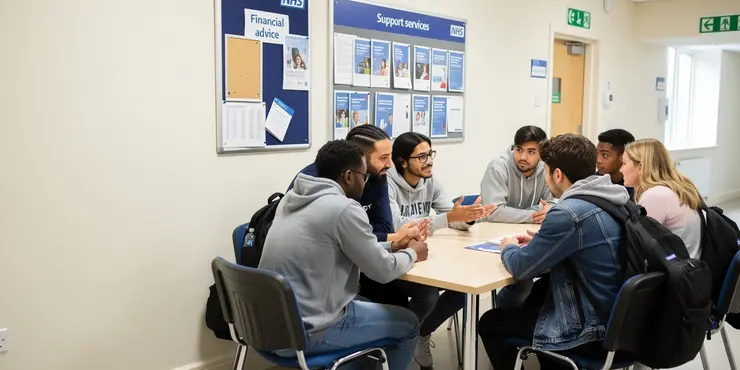
Will students receive the payment directly into their bank accounts?
Relevance: 50%
-

What criteria must be met for students to receive the payment?
Relevance: 49%
-

Can students receive the payment if they are already receiving other scholarships?
Relevance: 48%
-
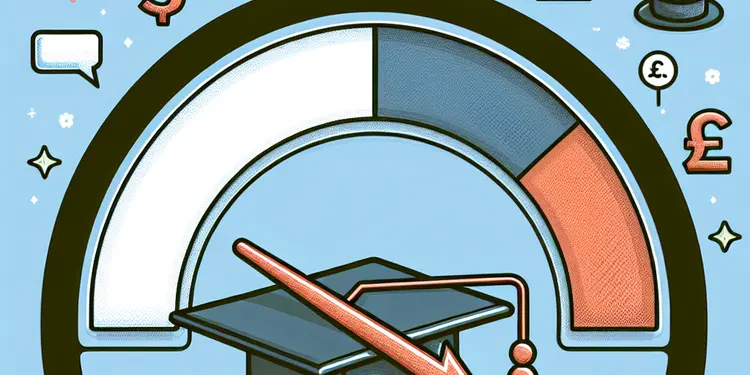
How does missing student loan payments affect my credit score?
Relevance: 45%
-

UNDERSTANDING YOUR STUDENT LOAN: A GUIDE FOR ENGLISH STUDENTS STARTING AN UNDERGRADUATE COURSE 2023
Relevance: 39%
-

Can I negotiate a settlement for my student loan?
Relevance: 38%
-
Is there a deadline to apply for the £500 cost of living payment?
Relevance: 38%
-
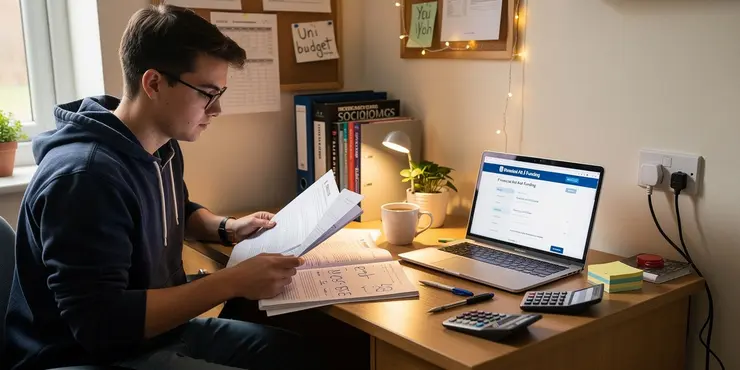
How does the payment affect students' financial aid packages?
Relevance: 38%
-

How can students find more information about applying for the payment?
Relevance: 37%
-
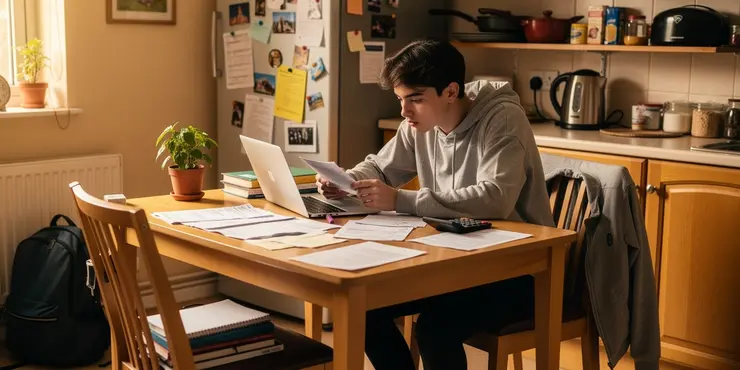
Do students need to provide proof of expenses to receive the payment?
Relevance: 37%
-

Can I get my student loans forgiven if I can't repay them?
Relevance: 37%
-
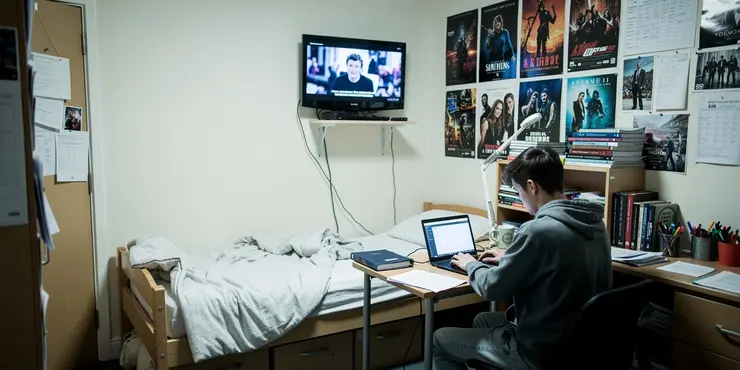
Are students required to pay for a TV license?
Relevance: 37%
-
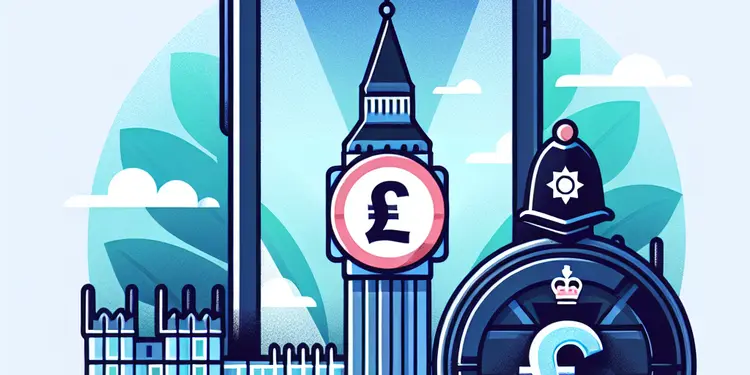
Can access to my police records be denied?
Relevance: 36%
-
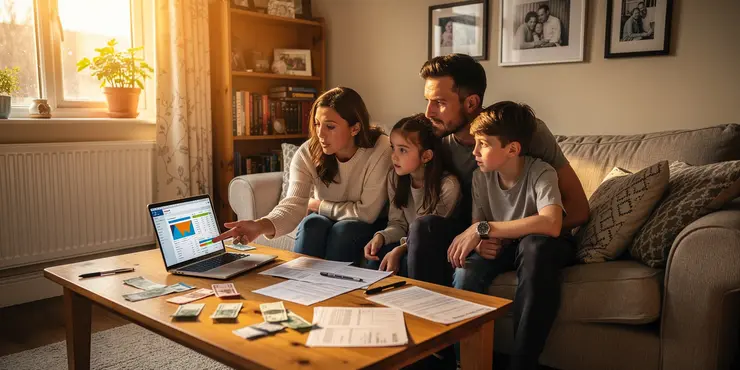
Is the £500 cost of living payment a one-time payment?
Relevance: 36%
-

Can students apply for Cost-of-Living support?
Relevance: 36%
-

Can I be denied bereavement leave?
Relevance: 36%
-

How do I apply for a Funeral Expenses Payment?
Relevance: 35%
-

What should I do if I can't afford to repay my student loan?
Relevance: 35%
-

What happens if I default on my student loan?
Relevance: 35%
-

How do I apply for the £500 cost of living payment?
Relevance: 34%
-
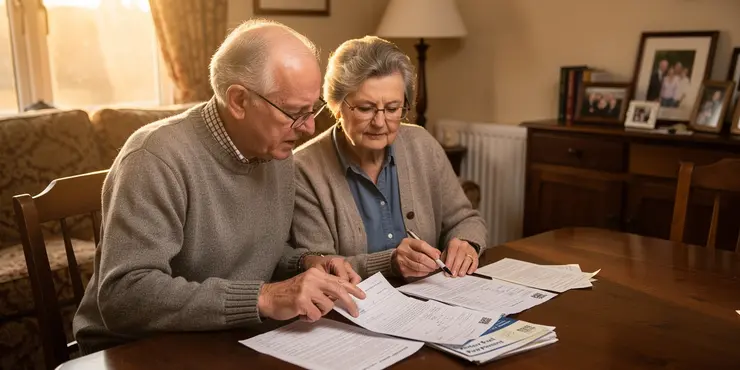
How do I apply for the Winter Fuel Payment in Scotland?
Relevance: 34%
-

Is bankruptcy an option for student loan discharge?
Relevance: 34%
-
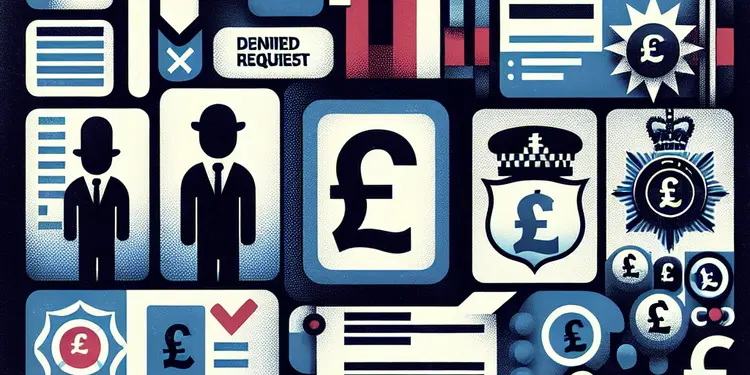
What should I do if my request to see my police records is denied?
Relevance: 34%
-
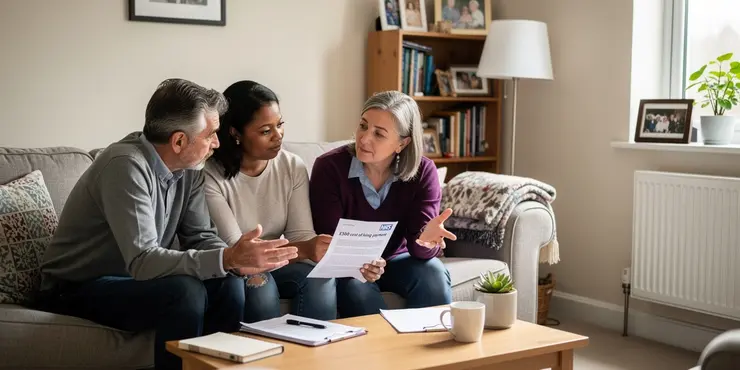
Are there any fees to apply for the £500 cost of living payment?
Relevance: 33%
-

Mortgage Turned Down In The UK - Why mortgage applications are declined
Relevance: 33%
-

Can I get a job with the National Trust if I am a student?
Relevance: 33%
-

What should I do if my holiday insurance claim is denied?
Relevance: 33%
-

Where can I check the status of my application?
Relevance: 32%
Understanding the Rejection
If a student in the UK has their application for payment denied, the first step is for them to carefully understand the reasons behind the rejection. The notification letter or email from the relevant student finance body, such as Student Finance England, should detail the specific grounds for denial. Common reasons could include missing documentation, discrepancies in the provided information, or not meeting eligibility criteria. It is crucial for students to thoroughly read and comprehend these details to know the exact cause of rejection.
Review Your Application
After identifying the reasons for the denial, students should review their entire application to verify that they have submitted accurate, complete, and consistent information. This review process involves checking personal details, income information, and any other required documentation. Students should ensure there are no errors or omissions in their submission as these can often be straightforwardly rectified.
Correct and Gather Necessary Documentation
If the rejection was due to missing or incorrect documentation, students should promptly gather the required documents. This may include proof of identity, household income evidence, or academic enrolment confirmation. Students should make sure that the updated or additional documents are clear and legible, as unclear documentation can lead to further delays or rejections.
Contact Student Finance for Clarification
Sometimes the rejection reasons might be unclear or seem unfounded to the student. In such cases, it is advisable to contact the student finance office directly to seek clarification. Students can call or email the office responsible for their applications. It's important to ask specific questions and take note of any advice or steps recommended by the finance officers.
Appeal the Decision
If, after reviewing the application and consulting with the student finance office, a student believes their application was wrongly denied, they have the right to appeal. The appeal process involves formally contesting the decision in writing. Students should clearly state why they believe the decision was incorrect and provide any supporting evidence or additional information that might help in reconsidering the application. It’s important to submit any appeals within the time frame specified by the finance body.
Seek Advice and Support
Students can also seek advice and support from their school's financial aid office or a student advisory service. These resources can provide valuable guidance and support throughout the appeals process. Additionally, they might offer insights into alternative funding options or scholarships that a student could explore.
Consider Alternative Funding Options
While appealing the decision, students should also explore alternative ways to finance their education. This might include looking into private student loans, scholarships, bursaries, or part-time work options. Staying informed about alternative funding sources can be beneficial as it ensures students have a backup plan if their appeal is ultimately unsuccessful.
Why Was It Denied?
If a student in the UK is told they won't get student money, they need to know why. They should look at the letter or email from the student finance office like Student Finance England. It will say why they said no. Sometimes it might be because of missing papers, mistakes, or not being eligible. Students should read carefully to understand the reasons.
Check Your Application
After finding out why they were denied, students should check their application. They need to make sure all the information is right and nothing is missing. This includes checking their personal details and income information. Fixing simple mistakes can often help.
Get the Right Papers
If they said no because of missing or wrong papers, students should get the right ones. This might be ID, proof of income, or proof of being at school. Make sure everything is clear and easy to read so it doesn't delay things again.
Ask for Help
If students don't understand why they were denied, they should ask for help. They can call or email the student finance office to ask questions. They should write down any advice they get from them.
Appeal the Decision
If students think the decision was wrong, they can appeal. This means writing to say why they think it was a mistake. They should add any new information that helps their case. Appeals should be sent in time, so make sure to check the deadline.
Find Support
Students can talk to their school's financial aid office or a student advice service. These people can help and give tips on other ways to get money for school.
Look for Other Funds
While waiting for an appeal, students should look for other ways to pay for school. This can be through private loans, scholarships, or part-time jobs. It's good to have a backup plan just in case.
Frequently Asked Questions
What is the first step if my payment application is denied?
Review the denial letter to understand the reason for the denial.
Who should I contact if I have questions about the denial?
Contact the financial aid office or the office that processed the application for clarification.
Can I appeal the decision of my payment application denial?
Yes, most institutions allow you to appeal the decision. Check with the relevant office for their appeals process.
How long do I have to file an appeal?
It varies by institution. Check the denial letter or contact the office to find out the deadline for appeals.
What documents do I need to submit for an appeal?
Commonly required documents include a personal statement and any additional information or corrections that support your case.
Can I reapply for the payment after a denial?
Yes, you can reapply if your situation changes or you provide additional information supporting your eligibility.
What reasons could lead to a payment application being denied?
Common reasons include missing information, failure to meet eligibility criteria, or errors in the application.
Should I contact my academic advisor if my application is denied?
Yes, your academic advisor can provide guidance and support during the appeal process.
How can I check the status of my appeal?
Contact the office where you submitted your appeal for updates on its status.
Is there someone who can help me with my appeal letter?
Yes, the financial aid office or a student advisor may be able to assist you in drafting your appeal letter.
What should I include in my personal statement for the appeal?
Clearly explain the circumstances that led to the denial, provide any new information, and describe why you believe the decision should be reconsidered.
If I correct errors in my application, will it be reconsidered?
Correcting errors and providing missing information can improve your chances in an appeal or a new application submission.
Will my denial affect future applications?
A denial does not necessarily affect future applications, especially if the reasons for denial are addressed.
Can I seek external funding sources if my application is denied?
Yes, look into scholarships, grants, and loans from other sources if your application is denied.
What is a reasonable timeframe to expect a response after appealing?
The response time varies, but you should receive a response within a few weeks. Contact the office if you have not heard back.
Are there specific formats required for an appeal letter?
Check with the relevant office for any specific formatting guidelines for the appeal letter.
Can a denial be due to an administrative error?
Yes, denials can sometimes result from administrative errors. Contact the office to verify if this is the case.
Is it possible to request an in-person meeting to discuss my denial?
Some offices may allow you to schedule a meeting to discuss your denial and possible next steps.
Will my application denial impact my enrollment status?
A payment application denial typically does not directly affect enrollment status, but it may impact your ability to pay fees.
What alternative options do I have if my appeal is unsuccessful?
Explore other financial aid options, consider part-time work, or seek advice on budget management.
What should I do if my payment is not accepted?
Read the letter that says "no" to find out why they said "no."
Who can I talk to if my request was turned down?
Get in touch with the school money help office or the office that looked at your form. They can explain things better.
Can I ask to change the decision if my payment application is denied?
Yes, most places let you ask them to change their decision. Look for the office that can help you with how to do this.
When do I need to ask for an appeal?
Different schools have different rules. Look at the letter you got, or talk to the school office to find out when you need to ask again.
What papers do I need to send to ask for another look?
To ask for another look at a decision, you need to send some important papers. These papers help to explain why you think the decision should change. Here are some tips to make this easier:
- Use a checklist: Make a list of the papers you need. This will help you not forget anything.
- Ask for help: If you are not sure what papers you need, ask a friend or a helper.
- Stay organized: Keep your papers in a folder so you can find them easily.
You might need to give a few important papers.
One paper is a personal story you write yourself.
You might also need to add more details or fix mistakes to help explain your situation better.
Can I ask for the money again if they say no?
You can try again if things are different or if you have more information to help show you can apply.
Why might a payment request be turned down?
Here are some reasons why a payment request might not go through:
- Not enough money in the account.
- Wrong card number or details entered.
- Suspicious activity noticed by the bank.
- Card has expired.
If this happens, you can:
- Check your card details and try again.
- Make sure you have enough money.
- Contact your bank for help.
Tools that might help:
- Online banking apps to check your balance.
- Security alerts from your bank.
Sometimes, your application might not be accepted. This can happen if:
- Important information is missing.
- You do not meet the rules for who can apply.
- There are mistakes in the application.
If you need help, you can ask someone to check your application or use a spell-check tool to spot mistakes.
What should I do if my application is not accepted?
If your application is not accepted, you can talk to your academic advisor for help. They can give you advice and tell you what to do next. You can also ask them questions if you are confused or need more information.
Yes, your school advisor can help you when you need support and advice with your appeal.
How can I see what's happening with my appeal?
Call or visit the office where you sent your appeal to ask how it is going.
Who can help me write my appeal letter?
Yes, the people who help with money for school, or someone who gives advice to students, can help you write a letter to ask for more money.
What should I put in my letter to ask for help?
Tell us why you were told "no," share anything new that might help, and say why you think we should change the decision.
Can I fix mistakes in my application and have it looked at again?
Fixing mistakes and adding any information that is missing can help your chances when you try again or ask for a change in decision.
Will my "no" answer change what happens next time I apply?
If you are told "no" when you apply, it does not always make a difference next time. If you fix the reasons why they said "no," it can help.
Can I look for money somewhere else if my application is turned down?
If someone says "no" to your request for money, you can try other places. Here are some ideas to help you:
- Look for other groups that might give you money.
- Ask a friend or family member where to find help.
- Use online tools that can show you more places to ask.
Keep trying and don't give up!
If your application is not accepted, you can try other ways to get money for school. You can look for scholarships, which is like a gift of money you do not have to pay back. You can also look for grants, which is similar to scholarships. Lastly, you can look for loans. Remember, you have to pay loans back later.
How long will it take to get an answer after you appeal?
It can take a few weeks to hear back. If you don't get an answer by then, call the office.
What is an appeal letter and how should I write one?
An appeal letter is a message you write to ask for something, like changing a decision. Here are some tips:
- Write who you are and why you are writing.
- Explain what happened and what you want.
- Be polite and clear.
You can ask someone to help you with writing or use tools like spell checkers.
Ask the right office how they want you to write the appeal letter. They might have special rules for how it should look.
Can a mistake cause a denial?
Sometimes, things can go wrong because of a mistake with the paperwork or computer. This is called an administrative error.
If you think there was a mistake, here is what you can do:
- Ask for help: Talk to a friend or family member.
- Contact the office: Call or visit the place that sent the denial.
- Write it down: Keep notes about what happened and who you talk to.
Sometimes mistakes happen, and that can cause a denial. It's a good idea to call the office and check if that's what happened.
Can I ask to meet in person to talk about why I was told no?
Some offices might let you book a meeting to talk about why you were told "no" and what you can do next.
Will my denied application change my enrollment?
If your payment is not accepted, it usually doesn't change your enrollment. But it might make it hard for you to pay your fees.
What can I do if my appeal does not work?
Look for other ways to get money for school, think about getting a part-time job, or ask someone for help with managing your money.
Useful Links
This website offers general information and is not a substitute for professional advice.
Always seek guidance from qualified professionals.
If you have any medical concerns or need urgent help, contact a healthcare professional or emergency services immediately.
Some of this content was generated with AI assistance. We’ve done our best to keep it accurate, helpful, and human-friendly.
- Ergsy carfully checks the information in the videos we provide here.
- Videos shown by Youtube after a video has completed, have NOT been reviewed by ERGSY.
- To view, click the arrow in centre of video.
- Most of the videos you find here will have subtitles and/or closed captions available.
- You may need to turn these on, and choose your preferred language.
- Go to the video you'd like to watch.
- If closed captions (CC) are available, settings will be visible on the bottom right of the video player.
- To turn on Captions, click settings .
- To turn off Captions, click settings again.
More Items From Ergsy search
-

What should students do if their application for the payment is denied?
Relevance: 100%
-

What happens if my application is denied?
Relevance: 67%
-

Can part-time students apply for the £500 payment?
Relevance: 61%
-

How can students apply for the £500 cost of living payment?
Relevance: 60%
-

Do international students qualify for the £500 payment?
Relevance: 57%
-

Is there an income threshold for students to qualify for the payment?
Relevance: 57%
-

What is the deadline for students to apply for the £500 payment?
Relevance: 56%
-

Can students receive the £500 cost of living payment?
Relevance: 56%
-

Are students eligible for the £500 cost of living payment?
Relevance: 56%
-

What happens if my application is denied?
Relevance: 53%
-

Is documentation of student status required for the payment?
Relevance: 53%
-

Can mature students apply for the £500 cost of living payment?
Relevance: 52%
-

Will students receive the payment directly into their bank accounts?
Relevance: 50%
-

What criteria must be met for students to receive the payment?
Relevance: 49%
-

Can students receive the payment if they are already receiving other scholarships?
Relevance: 48%
-

How does missing student loan payments affect my credit score?
Relevance: 45%
-

UNDERSTANDING YOUR STUDENT LOAN: A GUIDE FOR ENGLISH STUDENTS STARTING AN UNDERGRADUATE COURSE 2023
Relevance: 39%
-

Can I negotiate a settlement for my student loan?
Relevance: 38%
-
Is there a deadline to apply for the £500 cost of living payment?
Relevance: 38%
-

How does the payment affect students' financial aid packages?
Relevance: 38%
-

How can students find more information about applying for the payment?
Relevance: 37%
-

Do students need to provide proof of expenses to receive the payment?
Relevance: 37%
-

Can I get my student loans forgiven if I can't repay them?
Relevance: 37%
-

Are students required to pay for a TV license?
Relevance: 37%
-

Can access to my police records be denied?
Relevance: 36%
-

Is the £500 cost of living payment a one-time payment?
Relevance: 36%
-

Can students apply for Cost-of-Living support?
Relevance: 36%
-

Can I be denied bereavement leave?
Relevance: 36%
-

How do I apply for a Funeral Expenses Payment?
Relevance: 35%
-

What should I do if I can't afford to repay my student loan?
Relevance: 35%
-

What happens if I default on my student loan?
Relevance: 35%
-

How do I apply for the £500 cost of living payment?
Relevance: 34%
-

How do I apply for the Winter Fuel Payment in Scotland?
Relevance: 34%
-

Is bankruptcy an option for student loan discharge?
Relevance: 34%
-

What should I do if my request to see my police records is denied?
Relevance: 34%
-

Are there any fees to apply for the £500 cost of living payment?
Relevance: 33%
-

Mortgage Turned Down In The UK - Why mortgage applications are declined
Relevance: 33%
-

Can I get a job with the National Trust if I am a student?
Relevance: 33%
-

What should I do if my holiday insurance claim is denied?
Relevance: 33%
-

Where can I check the status of my application?
Relevance: 32%


